Nike’s Colin Kaepernick campaign continues a long history of political protests among sports stars
NIKE’S decision to make Colin Kaepernick the face of its latest campaign continues to divide opinion, but it’s far from the first time sport and politics have collided. Where does it rank among the most controversial sporting protests ever?

VIC News
Don't miss out on the headlines from VIC News. Followed categories will be added to My News.
SPORTSPEOPLE have used their public profile in the sporting arena to stand up for political issues for many years.
With Nike’s decision to make Colin Kaepernick the face of their latest campaign, let’s look back on some of the most prominent Australia and global examples.
PANAHI: NIKE’S COLIN KAEPERNICK ADVERTISEMENT A CYNICAL EXERCISE
EXILED NFL STAR KAEPERNICK’S NIKE CAMPAIGN
AMERICAN SNIPER WIDOW TAYA KYLE SLAMS NIKE OVER KAEPERNICK ENDORSEMENT
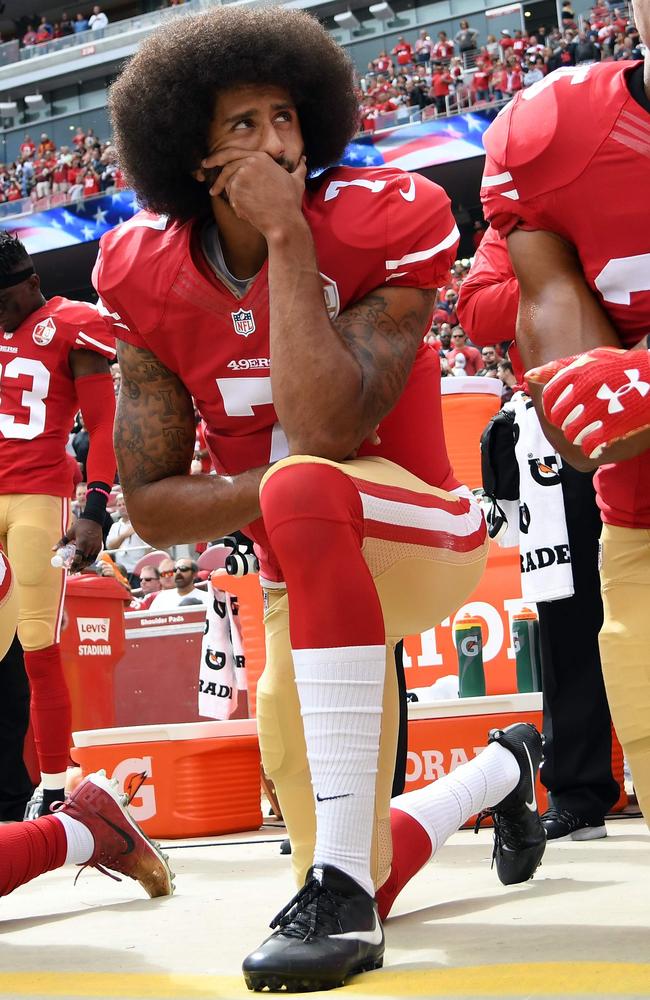
COLIN KAEPERNICK: TAKING A KNEE DURING NATIONAL ANTHEM
During the 2015 season, Kaepernick took a knee during the American national anthem in response to police brutality.
The act caused a significant stir with Kaepernick himself not playing in the NFL since the end of 2015 despite being a free agent and available to be given a contract.
While the initial stance was taken back in 2015, copy responses from other NFL players and American sports stars has seen the issue remain in the headlines with President Donald Trump condemning the act from a range of sportsman.
The response to the 2015 kneel has continued to this day with Kaepernick being made the face of Nike’s latest campaign.
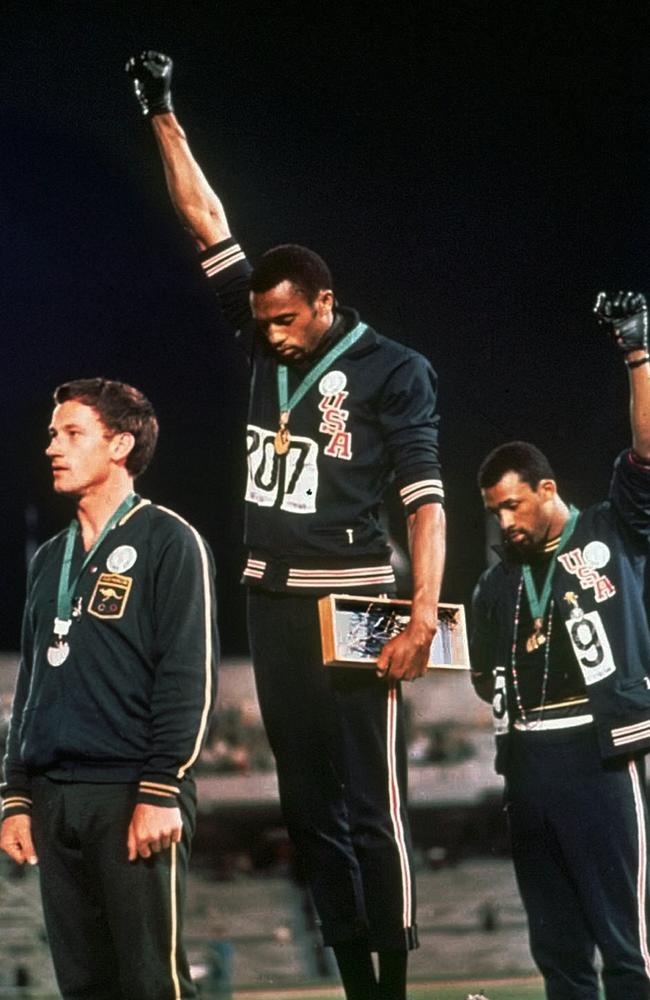
PETER NORMAN: 1968 OLYMPICS
At the 1968 Olympics at Mexico City, Australian sprinter Peter Norman took home a silver medal setting an Australian record (which still stands today).
However it was the medal ceremony from this particular event that has lasted long in the memory with American pair Tommie Smith and John Carlos joining together in a black power salute with Norman supporting the cause by wearing a badge in support of the Olympic Project for Human Rights.
The backlash over the ceremony saw Norman never compete at the Olympics again despite posting competitive times in the lead up to the 1972 Olympics.
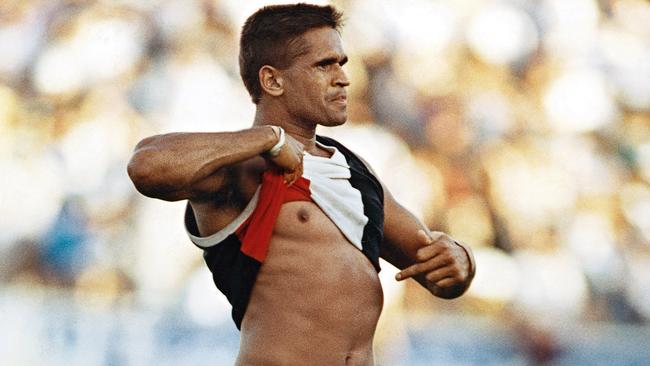
NICKY WINMAR
One of the most iconic photos in Australian sport occurred in round 4 of the 1993 AFL season.
Winmar demonstrated his pride at being an indigenous Australian by lifting his shirt and pointing at his chest at the conclusion of an AFL match against Collingwood.
Throughout the match, Winmar had faced constant abuse from the opposition supporters at Victoria Park, with his response still being an iconic image 25 years on.
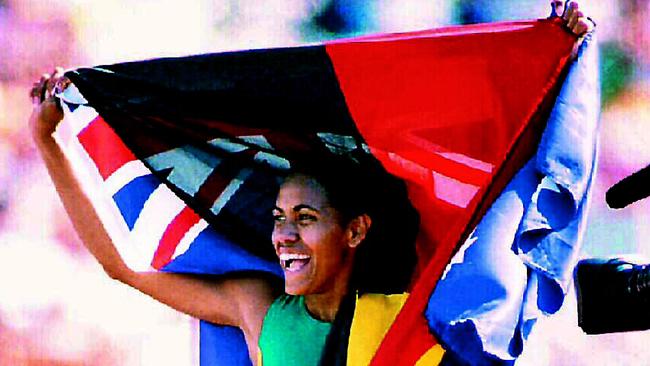
CATHY FREEMAN: 1994 COMMONWEALTH GAMES
Six years before her greatest triumph at the 2000 Olympics in Sydney, Cathy Freeman was caught up in a moment of controversy at the 1994 Commonwealth Games in Victoria, Canada.
After winning the 200 metres Commonwealth Gold medal, Freeman celebrated her victory lap with both the Aboriginal and the Australian flags.
The controversy stemmed from the fact that Chef de mission Arthur Tunstall threatened to expel Freeman if she repeated the act after the 400 metres.
Sure enough she did, and then again after her famous victory at the Sydney 2000 Olympics.
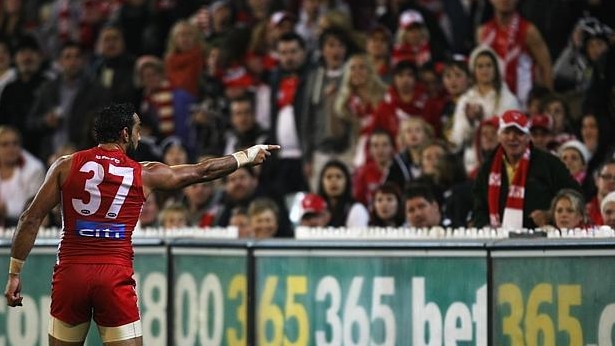
ADAM GOODES: 2013 AND 2015
The latter part of Adam Goodes’ AFL career will be remembered by many for a couple of events during the 2013 and 2015 AFL indigenous rounds and the subsequent response from the public.
In 2013, Goodes’ pointed out a young fan to security who had been directing racial abuse towards him.
Goodes faced booing in the following rounds and seasons with Goodes another incident in 2015 taking the abuse and booing to a new level.
In 2015, Goodes celebrated a goal during Indigenous Round by performing a war dance in front of the opposition.
While the dance was intended as a celebratory the reaction from the crowd and subsequent booing eventually took its toll on Goodes leading to his retirement at the end of the season.
The support from the AFL playing community shone through in the coming weeks with teams deciding to wear their indigenous strips in support of Goodes and to take a stance against this behaviour.
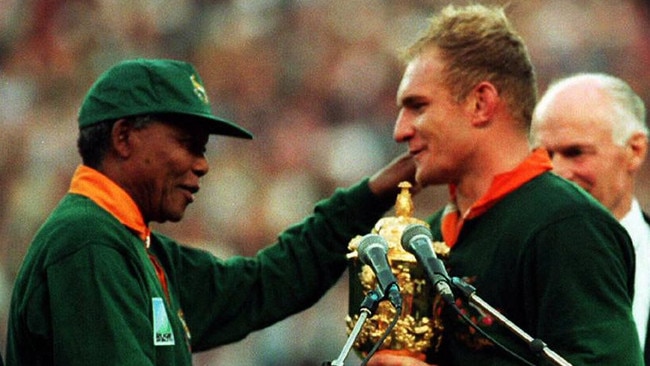
NELSON MANDELA: 1995 RUGBY WORLD CUP
Only a year or so into his presidency after spending 27 years in jail, the 1995 World Cup could have potentially further torn apart a country still recovering from the Apartheid era.
Seen by many as a symbol of the era, Mandela shocked many by presenting the trophy to South African captain Francois Pienaar wearing the Springbok shirt.
Despite the lead up and the beginning of the tournament being marred by protests, Mandela’s actions during the World Cup proved to be a major step towards the reconciliation of white and black South Africans.
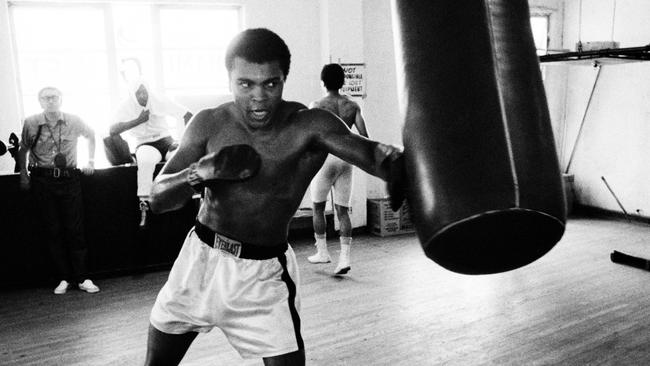
MUHAMMAD ALI: REFUSAL TO SERVE IN THE VIETNAM WAR
At the peak of his powers, Ali refused to serve in the Vietnam War sighting himself as a conscientious objector.
The move saw Ali lose his boxing career temporarily ended while at the peak of his powers as well as the risk of jail time.
While Ali eventually did return to boxing a year later, perhaps the most significant part of this stance was that it paved the way for others like Tommie Smith and John Carlos to take a stand not long after.
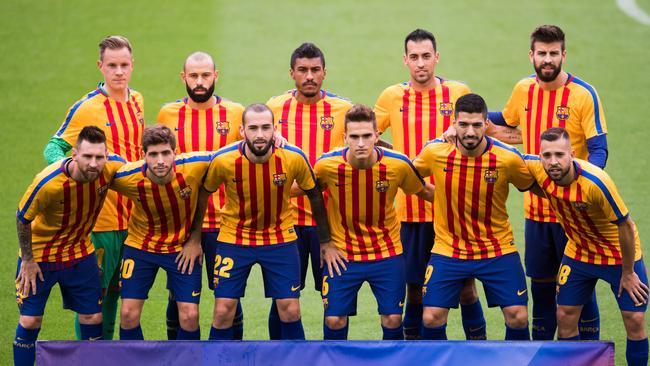
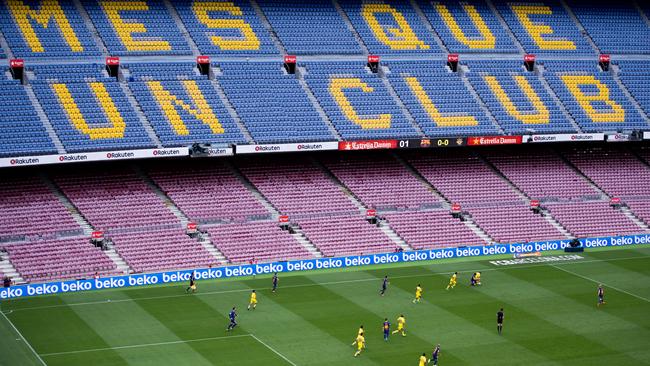
BARCELONA FC: CATALONIA REFERENDUM
One of the most famous football clubs in the world, Barcelona is a proud club of the Catalonia region which has led to plenty of disagreements and issues over the years.
The club has made their stance clear by donning kits coloured like the Catalonia flag over the years with the issue escalating due to the independence referendum.
In 2017, during the chaos regarding the Catalonian independence referendum, Barcelona wanted to suspend the game due to the protests.
When La Liga officials refused to allow this, the club played their game in front of an empty stadium to symbolise their discontent with the incidents in Catalonia.
With their opponents Las Palmas donning a Spanish flag on their own kit in support of a unified Spain, the tensions only continued to bubble away despite the lack of crowd.


